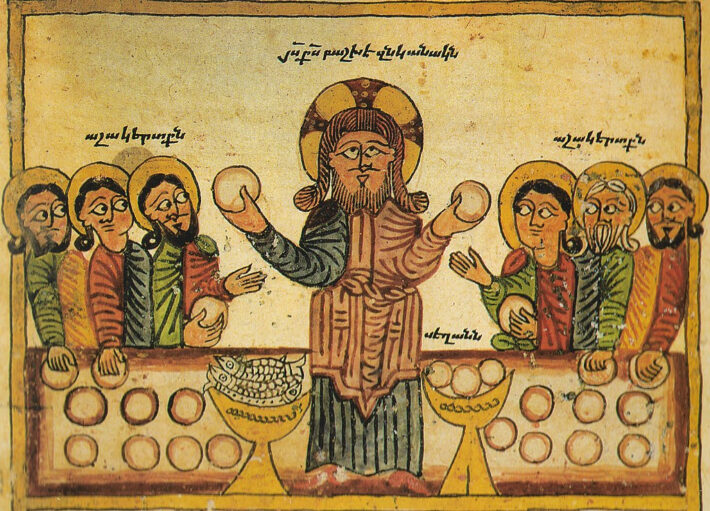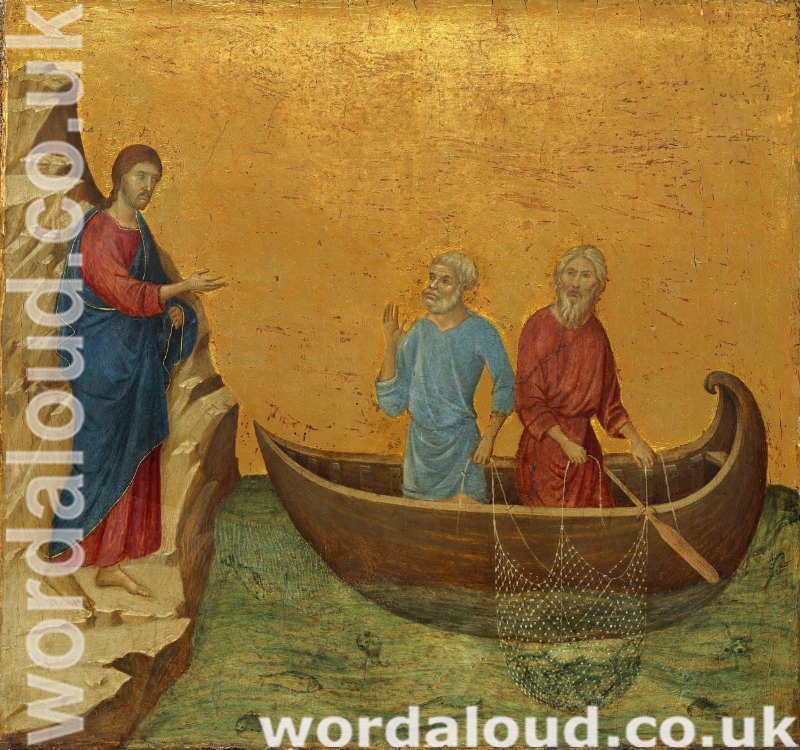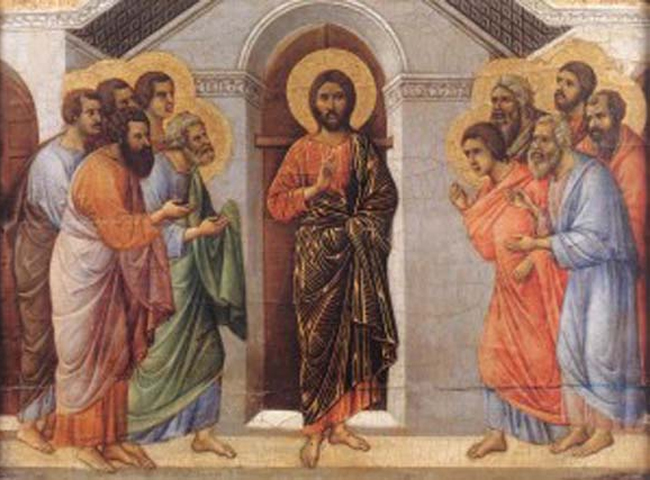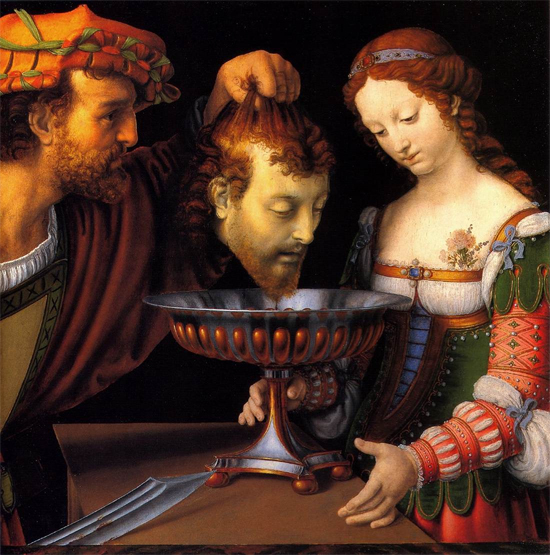Christian Art | Promise Of The Holy Spirit At Pentecost
John 14: 21-26 | King James Audio Bible
21 He that hath my commandments, and keepeth them, he it is that loveth me: and he that loveth me shall be loved of my Father, and I will love him, and will manifest myself to him.
22 Judas saith unto him, not Iscariot, Lord, how is it that thou wilt manifest thyself unto us, and not unto the world?
23 Jesus answered and said unto him, If a man love me, he will keep my words: and my Father will love him, and we will come unto him, and make our abode with him.
24 He that loveth me not keepeth not my sayings: and the word which ye hear is not mine, but the Father’s which sent me.
25 These things have I spoken unto you, being yet present with you.
26 But the Comforter, which is the Holy Ghost, whom the Father will send in my name, he shall teach you all things, and bring all things to your remembrance, whatsoever I have said unto you.
Chapter 14 of John’s Gospel gives us a beautiful example of the ways in which the disciples learnt from Jesus. There is clear, honest and responsive asking of questions on matters the disciples are confused about, which Jesus readily answers, guiding them as a friend and teacher toward truth and faith. The relationship between Jesus and the disciples is very beautiful, and stands as a guide to how we should understand our own relationship with Jesus. He is our Lord, he is our teacher. He is also our friend.
God revealed himself to man, and promised to live among the chosen people, at many times through the Old Testament. In these Bible verses, Jesus suggests a new relationship between Christian people and God. If we love and follow Jesus, if we keep to his teachings, which are the word of God, then Jesus and his Father will love us in return; they reveal themselves to us and make a home with us and in us.
There will be, then, an indwelling of the Holy Spirit in the Christian soul, which is renewed by the act of grace. To love, then, is to know the truth of God. Through love and obedience, we find God within us. We make ourselves a temple to the Lord.
The disciples’ understanding is not yet fully clear. Jesus promises them that, with the coming of the Holy Spirit, they will recall Jesus’ words and then they will understand all things. This gift of the Holy Spirit continues to be our guide, entrusted to the Church at Pentecost and preserved to this day.
‘You were with me, but I was not with you. The beautiful things of this world kept me far from you and yet, if they had not been in you, they would have had no being at all. You called me; you cried aloud to me; you broke my barrier of deafness; you shone upon me; your radiance enveloped me; you cured my blindness.’ St Augustine, Confessions
King James Audio Bible | Endnotes
Christian Faith And Love And the Commandments
The Bible teaches that Christian faith and love are inseparable. John 14:21-26 highlights this connection, stating that those who love Jesus will keep His commandments, and the Holy Spirit will be sent to dwell within them. Similarly, John 15:26-16:4 explains that the Spirit will testify about Jesus, and those who follow Him will face opposition from the world.
The commandments of Jesus are rooted in love for God and others. In Matthew 22:37-40, Jesus summarized the entire law as loving God with all one’s heart, soul, and mind, and loving one’s neighbour as oneself. This love for God and others is not just an emotion or feeling but is demonstrated through actions.
The Church emphasizes the importance of keeping the commandments of Jesus in its catechism. The Catechism of the Catholic Church states that keeping the commandments is necessary for salvation and is an expression of love for God and neighbour (CCC 2068-2075). The Church also teaches that the Holy Spirit helps believers to keep the commandments and grow in love (CCC 1820-1829).
Protestant theologian John Calvin stressed the connection between faith and love. He wrote in his Institutes of the Christian Religion that faith and love are inseparable, and true faith always produces love for God and others (Institutes, 3.2.7).
The Protestant emphasis on salvation by faith alone can sometimes lead to a neglect of good works and keeping the commandments. However, Protestant theologian Martin Luther stressed that true faith always leads to good works and obedience to God’s commands. He wrote in his Large Catechism that ‘faith is a living, busy, active, mighty thing’ that produces good works and love (Large Catechism, II.36).
The Church Fathers emphasized the connection between faith and love. Saint Augustine wrote in his Confessions: ‘Love and do what you will.’ (Confessions, 10.6) He meant that if one truly loves God, then their actions will naturally align with God’s will.
Christian faith and love are intimately connected, and keeping the commandments of Jesus is an expression of that love. The Holy Spirit helps believers to keep the commandments and grow in love. Both Catholic and Protestant traditions emphasize the importance of keeping the commandments and doing good works as a natural outflow of faith and love. The Church Fathers stressed the importance of love in one’s actions. The call to Christians is to love God with all our hearts and all mind and to love neighbours as ourselves, God’s commandments being a tangible expression of that love.
Church Fathers | Saint Ignatius of Antioch
Saint Ignatius of Antioch was a second-century bishop and martyr. He was a disciple of the Apostle Saint John and a contemporary of other early Church leaders such as Polycarp and Clement of Rome.
In his writings, Ignatius emphasized the importance of Christian faith, love, and obedience to God’s commandments. He believed that these three elements were essential for a Christian to live a life pleasing to God and to attain salvation.
Saint Ignatius believed that faith in Jesus Christ was the foundation of Christian life. He wrote in his Letter to the Ephesians: ‘For faith is the beginning and the end, and the first and last commandment is faith.’ Ignatius believed that faith in Jesus Christ was the key to salvation and that all other Christian virtues flowed from it.
However, Ignatius also believed that faith without love and obedience to God’s commandments was incomplete. In his Letter to the Magnesians, he wrote: ‘For he that does not confess this, has denied Him by his deeds; being self-condemned, that he has no faith towards God, and has not taken in the mystery of God’s love to man.’
For Ignatius, love was not simply an emotion but an action. He believed that Christians are called to love God and their neighbours through acts of service and self-sacrifice. In his Letter to the Philadelphians, he wrote: ‘Let your works be your love. And let your love be your faith.’ Ignatius believed that love is the manifestation of faith and that Christians cannot claim to have faith without demonstrating it through acts of love.
Saint Ignatius believed that obedience to God’s commandments is necessary for Christian life. In his Letter to the Smyrnaeans, he wrote: ‘He who does not keep the commandments is in darkness and in death.’ Ignatius believed that God’s commandments are not burdensome but are given for the good of humanity. He encouraged Christians to follow God’s commandments joyfully and willingly.








